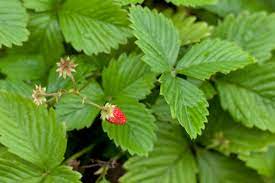Botanical Description:
Scientific Name: Mucuna pruriens
Common Names: Mucuna, Velvet Bean, Cowhage
Description:
Mucuna is a leguminous plant belonging to the Fabaceae family. Native to tropical regions, it is characterized by its distinctive long pods covered in bristly hairs. The seeds of Mucuna, commonly known as velvet beans, have been used in traditional medicine for their potential therapeutic properties.
Disclaimer:
This Materia Medica is provided for informational purposes only and should not replace professional medical advice. Please consult with a qualified healthcare practitioner or herbalist before using any herbal remedies.
Therapeutic Actions:
- Dopaminergic Support:
- Mucuna contains L-DOPA, a precursor to dopamine, and is used for its potential support in conditions related to dopamine deficiency.
- Adaptogenic:
- Exhibits adaptogenic properties, helping the body cope with stress and promoting overall well-being.
- Aphrodisiac:
- Traditionally used as an aphrodisiac, Mucuna is believed to enhance libido and sexual function.
- Antioxidant:
- Contains antioxidant compounds that help combat oxidative stress.
Constituents:
- L-DOPA (Levodopa):
- The primary bioactive compound in Mucuna, known for its role in dopamine production.
- Flavonoids:
- Contribute to the overall antioxidant effects of Mucuna.
- Alkaloids:
- Various alkaloids present in Mucuna seeds.
Traditional Uses:
- Parkinson’s Disease:
- Mucuna, due to its L-DOPA content, has been explored for its potential supportive role in Parkinson’s disease.
- Stress and Anxiety:
- Used as an adaptogen to help the body cope with stress and reduce anxiety.
- Libido and Fertility:
- Traditionally employed as an aphrodisiac, Mucuna is believed to enhance libido and fertility.
- Nervous System Support:
- Used for its potential neuroprotective effects and overall support for the nervous system.
Dosage and Preparation:
- Mucuna Extract:
- Standardized Mucuna extracts are available in various forms, including capsules and powders. Dosages vary, and it’s essential to follow recommended guidelines.
- Mucuna Tea:
- Infusions made from crushed Mucuna seeds. Dosage may vary, and it’s essential to follow recommended guidelines.
Cautions and Considerations:
- L-DOPA Sensitivity:
- Individuals with sensitivity to L-DOPA or those taking medications affecting dopamine levels should use Mucuna with caution.
- Pregnancy and Breastfeeding:
- Safety during pregnancy and breastfeeding is not well-established, and consultation with a healthcare professional is recommended.
- Interactions:
- Potential interactions with medications; consultation with healthcare professionals is essential.
Conclusion:
Mucuna, with its velvety pods and potent seeds, holds significance in traditional medicine, particularly for its dopaminergic support and adaptogenic properties. From its potential role in Parkinson’s disease to its traditional use as an aphrodisiac, Mucuna offers a range of therapeutic applications. Whether taken as standardized extracts or infused into a tea, Mucuna provides accessible options for those seeking natural remedies. However, caution is advised, especially for individuals with sensitivity to L-DOPA or specific health concerns. This Exhaustive Materia Medica aims to provide comprehensive insights into Mucuna’s botanical description, therapeutic actions, constituents, traditional uses, dosage, precautions, and applications. For personalized guidance, consultation with healthcare professionals or herbalists is recommended, ensuring safe and effective utilization of Mucuna as a herbal remedy.





